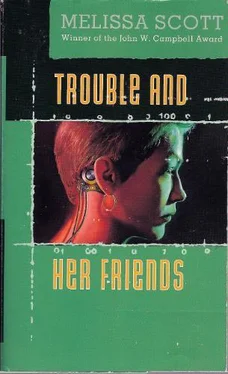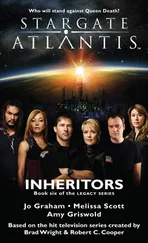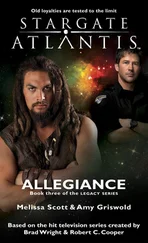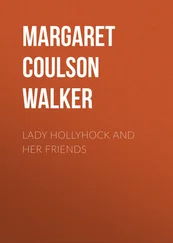Trouble nodded slowly, remembering the sheer scale of virtual Seahaven, of the power, hardware and software, that the Mayor needed to maintain the illusion. Turn that power on a city system, and no IC(E) would be sufficient; at that scale, brute force alone would be enough to shatter the city’s coding, leave all the files, all the city systems, open and vulnerable.
“Does The Willows care?” Cerise asked, with a smile that did not touch her eyes.
Mabry’s eyes flicked toward her, and then away again. “The Willows is tied in to city services—drainage, the pump system, sewers, traffic control, all that. If Novross crashes those, The Willows doesn’t have sufficient backup power to keep things running.” He turned back to the control board, running one hand along a sensor strip. “Besides, the city systems contain the tax records.”
“Ah.” Cerise’s smile widened into open contempt.
The sirens were louder now as they crossed the Harbormouth bridge, and the local cops had set up a hasty roadblock halfway down Ashworth Avenue. Other cops were fanning out from the roadblock, moving along the storefronts to shut down the businesses and force the citizens indoors. Out of harm’s way, or, more likely, just out of their way, Cerise thought. Mabry extended his credentials to the waiting cop, a man in full armor under his coveralls, with a stunstick at his belt and a pellet gun slung across his shoulder.
“Where’s Starling?”
The cop didn’t answer at once, but studied the folder with its double ID carefully, checking both identification and warrant before he returned it to its owner. “Down by the house,” he said. “He’s directing the operation.”
“Wonderful,” Trouble muttered.
Mabry said nothing, gestured to the driver. The young man pulled the car sharply around the end of the barricade, and started down the narrow street.
The cops had removed some of the parked cars from this end of the road, though they’d left others in place as makeshift barricades. Two fast-tanks were pulled into place across the street, one with its rear treads resting precariously on the soft ground that edged the Slough, the other blocking the roadway entirely. A trio of armored cops—wearing state badges rather than The Willows’ insignia—crouched in its shelter; a fourth man, equally armored, stepped out of its shadow and waved the car to the side of the road. The driver slowed obediently, and Mabry lowered his window to confer with the approaching officer.
Cerise laughed sharply. “You’d think the man was a fucking terrorist. Look at all this.”
Mabry glanced back at her, then turned to hand his credentials to the armored man. “Where’s Starling?”
“Mr. Mabry,” the cop acknowledged, straightened slightly as though he would have saluted. “Mr. Starling wants to see you right away. Down there, sir.” He pointed toward a third, smaller car, recognizable as police only by the way it was parked, slewed deliberately across the road to provide protection behind its bulk.
“I want to see Mr. Starling,” Mabry said, and levered himself out of the car. “You two, wait here.”
“Fine,” Trouble said to his back. She watched him make his way down the street, broad-shouldered in his battered jacket, conspicuously casual among the armored and uniformed police huddling behind the cars.
“What the fuck do they think they’re doing?” Cerise demanded. “He’s a cracker, not a gunrunner.”
Trouble saw the driver’s shoulders twitch, and a detached part of her admired the man’s self-control. “Yeah,” she said, deliberately provocative, “crackers don’t generally go around shooting cops.”
Cerise shook her head, still furious. “They got to be crazy, reacting like this.” But that was Evans-Tindale for you: the laws had been written by people who feared the nets, and it was that same fear that made things escalate, spiraling out of control.
Another siren sounded, a deeper note this time, and Trouble twisted in her seat to stare back the way they’d come. A fire engine, one of the heavy tower trucks with a lift basket on the front and a massive ladder-and-hose station at the back, was making its way ponderously down the street. One of the armored cops shouted and waved, and the driver edged their car in closer to the curb to let the fire engine pass. There were more armored men clinging to its sides.
“All this for software?” Trouble said. “They’ve got to have backups.”
The driver turned in his place, pale face very serious. “We can’t let him get away with the threat—we don’t dare let him crash the city systems.”
“This isn’t going to stop him,” Cerise said. She shook her head again. “This is not how you deal with the net.”
“They must have somebody trying to stop him on-line,” Trouble said, but her tone was less confident than her words. All this hardware could only be an admission of failure, a desperate attempt to stop something that couldn’t be dealt with in virtuality—and this would have to fail, too, she thought. If the Mayor really did hold Seahaven’s systems hostage, really had gained control of them through the net, then the fastest, most surgically efficient realworld attack would be seconds, minutes too slow. Starling, at least, would know it; she wondered bleakly if any of the others realized just how ineffective they really were.
“Trouble!” That was Mabry, striding back toward the car, his jacket flying open around him. “Cerise!” He lifted a hand, beckoning, and the driver popped the rear doors.
“Bet you he wants us to go cracking for him,” Cerise said, and swung herself neatly out of the compartment.
Trouble followed more slowly. “I don’t make bets on a sure thing.”
“We have a problem,” Mabry said.
“No shit,” Cerise murmured.
Mabry pretended he hadn’t heard. “Novross does seem to have control of the city systems. Starling and his lot have been trying to dig him out for the past half hour.”
He tilted his head toward a black van that sat behind the line of cars. A cable snaked from a shielded port and disappeared into the door of the nearest building: Treasury’s special netwalkers, Trouble realized.
“They haven’t made much progress, but they’re still working on it,” Mabry said. “But the main thing is, Novross wants to talk to you.”
He was looking directly at Trouble, but even so she frowned in confusion. “To me?”
“To you,” Mabry agreed.
Trouble looked at Cerise, who shrugged, looked back at Mabry. “Why?”
“I don’t know,” Mabry answered. “He’s not precisely forthcoming on the matter. But he wants to talk to you—he says he’ll negotiate with you. And only you.”
“I doubt that,” Cerise said.
“She’s right,” Trouble said, and dredged a smile from somewhere. “We’re not exactly on friendly terms. But I can crack his IC(E)—let me in that van, and I’ll get him off the nets.” It wouldn’t be that easy, she knew, would take time and effort and probably more tools than she had with her, though Treasury might have some of what she would need—
Mabry shook his head. “It’s not on, Trouble. I’m sorry. Starling thinks his men can handle it, but he needs time. They need time. And Novross wants to talk to you.”
“He could kill her,” Cerise said sharply. “Did you think of that? Or is that what Starling has in mind?”
“He’s promised full cover,” Mabry said. Behind him, machinery whined, and the fire engine’s bucket rose jerkily into the air, swinging slightly from side to side. An armored figure was just visible over the edge of the bucket, gauntleted hand cupped to a headset in his helmet. The bucket rose higher, swung slightly sideways, so that the men in the bucket—there were two of them, Trouble realized—had the Mayor’s windows in their field of fire. “And I intend to hold him to it.”
Читать дальше












